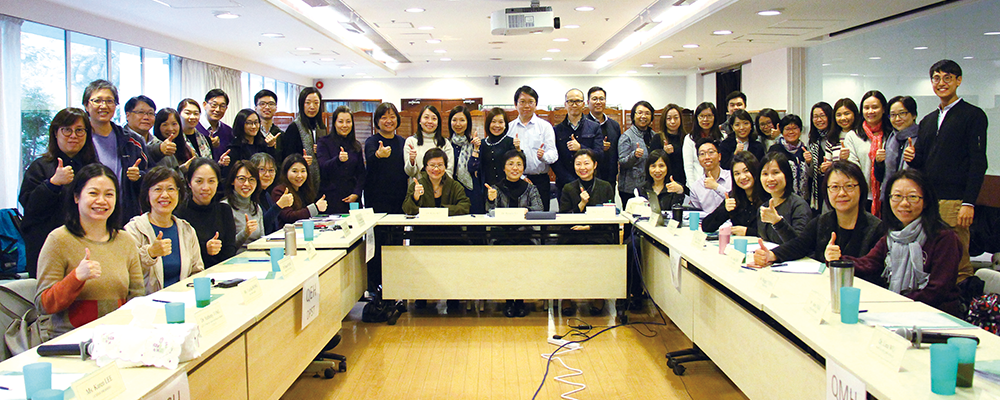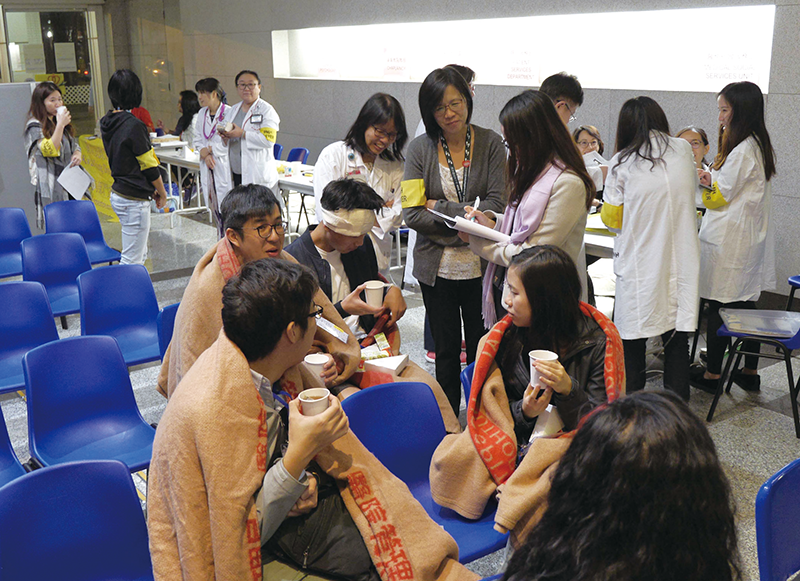Prepare for the unpredictables
Establishment of Task Force
The HA set up the Disaster Psychosocial Services Team (DPST) in 1999 to provide counselling for survivors of disasters and grieving families of victims. A task force for disaster psychosocial services was then established in 2012 to develop systematic training for post‑disaster counselling skills and drill, support HA emergency response operations outside Hong Kong, as well as provide disaster preparedness information for HA employees and the public.
There are 17 DPSTs in all HA acute general hospitals with a total of more than 300 members, with 60% of them HA employees and the remainder medical social workers from Social Welfare Department. Each team has a coordinator who evaluates every situation to decide appropriate responses.
Disaster psychosocial support training
Disaster psychosocial support involves specialist skills and strategies. The Task Force provides training for DPST members in three areas, namely acute grief support, psychological first aid and psychological recovery. It also organises workshops in subjects such as Eye Movement Desensitisation and Reprocessing (EMDR) which is an internationally-recognised psychological intervention for the treatment of post-traumatic stress disorder.
Task Force representative Clinical Psychologist Eva Tong says that in recent years members also take part in disaster drills. “The DPSTs have participated in Exercise Chocolate in January this year, which is the first drill arranged by the Task Force specifically for DPST members. The scenario involved a large explosion at a carnival. Members exchanged ideas and learned from one another during the exercise.”
The first disaster psychosocial services website
To provide comprehensive information on disaster preparedness and emergency responses in Hong Kong, the Task Force has collected intelligence from overseas to create a disaster psychosocial services website which will be launched this April. The website includes information on psychological impacts of disasters, advice on disaster preparedness, response and recovery, and an exchange platform for DPST members.
There are two kinds of preparation to deal with disasters – psychological preparation and physical preparation. Psychological preparation involves having the correct attitude and mindset and avoiding the trap of believing Hong Kong is a blessed place, so there is no need to safeguard against disaster. Physical preparation involves learning about disaster preparedness measures and basic survival skills. By learning both forms of preparation, people can become much better equipped to withstand the impact of disaster and cope with the trauma of aftermaths.
● Filling the gap of doctor shortage
COVER STORY
● In search of doctors with limited registration to relieve frontline stress
● Overseas returnees guard hospital frontline: case 1
● Overseas returnees guard hospital frontline: case 2
● How to ensure the standard of non-locally trained doctors?
WHAT'S NEW
● HA Go: an empowering app to manage one’s health
● Together we shall overcome challenges
● Patient-friendly perspective says it all
● Dr Nguyen’s secret way to reduce stress
● Mobile blood drive follows donor footprints
HELEN HA
● New tools enhance staff communication
● Keep your phone going even in hospital
FEATURE
● Disaster relief helps victim cope with grief
● Prepare for the unpredictables
STAFF CORNER



